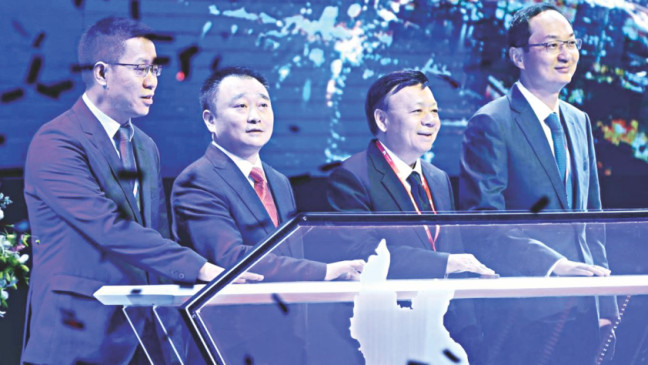Huawei mulls over assembling smartphones in Bangladesh after the government this fiscal year slashed the customs duty for mobile parts for assembling locally.
At present, the customs duty for mobile parts for local assembling is 1 percent, down from 20-25 percent previously. At the same time, the government doubled the customs duty on handset import to 10 percent.
“I am well aware of this recent development,” said Zhou Jianjun, vice-president of carrier network business (emerging market) at Huawei Technologies.
“We may not set up a manufacturing plant directly, but we can engage with partners who will do it. We can give them technical and knowledge support,” he said on the sidelines of the Asia Pacific Emerging Market Summit 2017, held at Shangri-La hotel in Bangkok yesterday.
Huawei with the National Broadcasting and Telecommunications Commission of Thailand organised the event themed ‘Emerging Markets, Emerging Opportunities’.

About 200 experts, operators and industry partners from Bangladesh, India, Nepal, Thailand, Malaysia, Indonesia, Myanmar¸ Sri Lanka, Cambodia, Vietnam and Hong Kong attended the event.
Zhou, however, refused to divulge with whom Huawei would team up to assemble handsets locally.
The move will help in bringing down the smartphone price level in Bangladesh and also will foster internet penetration, he said.
“There is no doubt that low-cost handsets play a very important role in digitisation,” Zhou said.
Huawei has expressed its interest to work with the Bangladesh government for the digitisation process and build digital infrastructure, according to Steven Qin, president of the network marketing department of Huawei.
“Bangladesh is in our plan for this year,” Zhou said, adding that the country is a huge market for the Chinese telecom giant because of its population of 160 million.
In 2016, Bangladesh imported about 31 million handsets, of which 7.8 million were smartphones.
Senior executives of Huawei also lauded the Bangladesh government for its plan to award 4G mobile licences soon, as it will deploy the fastest data service in the country.
Huawei is now working on 5G technology, which, it believes, will change the world and ensure everybody’s connectivity across the globe.
At the summit, experts also shared their insights on ensuring sustainable development of business in the telecom industry.
Digital transformation has already spread like wildfire throughout the ICT industry, with operators in emerging market also experiencing both challenges and opportunities.
Experts also addressed how to develop a healthy emerging market and explore value-driven growth.
“Customers are very powerful as they have many other alternatives in their hands and that also force operators to improve their service quality,” said Xiaofeng Wang, a senior analyst of Forester Research.
In the digital era, app developers are more powerful than the mobile operators, she said.
At present, there are 3.9 billion people still out of any form of connectivity, a majority of which are in the developing world, according to a presentation made at the event.
This greenfield also provides huge scope for operators, experts said.
All the countries in the Asia and the Pacific region are now in the process of digitisation, they added.
Source: The Daily Star









